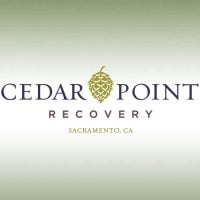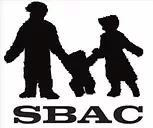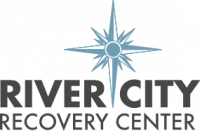Sierra Vista Hospital
Drug Rehab Center in Sacramento, California
Sierra Vista Hospital in Sacramento, California is a premier addiction and mental health care facility on the West Coast, offering evidence-based treatments and therapies, a judgment-free environment, and a full spectrum of care including inpatient treatment, detoxification, and aftercare support, with accredited staff providing individualized care using traditional and new breakthrough methods for successful, long-term recovery.
About This California Facility
Sierra Vista Hospital in Sacramento, California, specializes in helping adolescents and adults fight against mental health issues and addiction. This dual diagnosis treatment center offers a continuum of care, including alcohol detox, inpatient and outpatient programs, and aftercare, making use of its 171-bed capacity to provide a supportive and therapeutic environment for recovery. Unique for its comprehensive approach, Sierra Vista stands out as a resource for those seeking a new beginning.
Accredited by the Joint Commission on Accreditation of Healthcare Organizations (JCAHO), Sierra Vista Hospital employs board-certified physicians and licensed clinical therapists to provide personalized, evidence-based treatment. By accepting most insurance plans, including Aetna and BlueCross/BlueShield, the facility ensures a wide range of individuals have access to their services. The hospital's aim is to offer a safe, judgment-free zone where patients can find solace and recovery.
- Dual Diagnosis Treatment: Offers specialized programs for individuals dealing with co-occurring mental health and substance use disorders.
- Variety of Program Options: From intense inpatient treatment to flexible outpatient sessions, the hospital caters to differing needs and schedules.
- Comprehensive Aftercare: Post-treatment support including community referrals and life skills development, ensuring a continuum of care that supports long-term recovery.
Sierra Vista Hospital treats a breadth of addictions and mental health issues, incorporating methods like Cognitive Behavioral Therapy alongside innovative solutions such as Telehealth services. With a focus on offering inpatient, partial hospitalization, and intensive outpatient programs, the center adapts to the unique needs of each patient, supporting their journey towards sobriety and mental wellness.
Genders
Ages
Modality
Additional
Accreditations

JCAHO
Conditions and Issues Treated
Opioid addiction is the result of repeated use, or abuse, of opioid drugs. It is recommended for people who are dependent on opioids, or who have a high risk for dangerous health concerns, to seek professional treatment. Treatment plans usually include behavioral therapy and medication-assisted treatment.
Opioid drugs include: fentanyl, heroin, methadone, oxycodone, and oxymorphone.
Opioid addiction treatment is beneficial for:
- People who have a history of severe withdrawal.
- People with a high risk for dangerous health concerns.
- People having difficulty overcoming opioid addiction on their own.
There are different kinds of Dual Diagnosis:. A person who simultaneously experiences both a mental illness and an addiction disorder. Or, a person who experiences one or more coexisting (simultaneous) mental health conditions in addition to a primary substance use disorder.
The treatment requires a multi-disciplinary approach, it’s crucial for individuals to partner up with a healthcare provider who understands all the recovery components.
Levels of Care Offered at Sierra Vista Hospital
This center offers a variety of custom treatment tailored to individual recovery. Currently available are Aftercare Support, Detox, Dual-Diagnosis, Inpatient, Intensive Outpatient, Outpatient, with additional therapies available as listed below.
Detox is the stage of recovery where the drugs or alcohol are entirely removed from your body. There are two different ways to detox, with medications and without. For many drugs and alcohol, the acute phase of detox can be completed in a number of days.
Inpatient treatment is the most intensive level of care, and it’s necessary for those who aren’t able to control their addiction. These patients also must be drug-free before attending inpatient programs .
During inpatient treatment, addicts live at an inpatient facility 24 hours a day while receiving help. This type of program is generally recommended for those who need to go through detoxification or who are struggling with serious addiction-related issues.
An Intensive Outpatient Program (IOP) is a form of drug treatment that allows individuals to receive the therapy they need while remaining in their homes and community.
An IOP is typically 3-5 days per week, at least 4 hours each day of treatment. Treatment can last for a few months or longer, depending on the situation.
An IOP is a step down from an inpatient treatment center and can be used as a step down from an inpatient stay or as a more intense form of outpatient treatment. IOPs allow for the flexibility to continue working and living at home while still meeting treatment demands.
The outpatient programs in Sacramento, CA are for those addicted drugs or alcohol. The goal of the outpatient rehabilitation program is to make them stop abusing drugs or alcohol, reduce drug use or addictive behaviors, and become entirely sober. It is generally required to attend the outpatient program for 10-12 hours every week.
Patients can be administered on-the-spot medication to ease withdrawal symptoms such as anxiety, increased heart rate, and even depression. Groups such as Alcoholics Anonymous (AA) and Narcotics Anonymous (NA) can be used as a part of outpatient treatment to help maintain sobriety.
Aftercare support is a service many addicts need to ensure their success at recovery. This service usually includes one-on-one or group therapies, assistance from a sponsor and other types of help designed to make sure the patient continues living a life free from drugs.
Patients also may require medication to help them battle addiction. Some people have been able to successfully recover without additional medications, but others have found that they need help during their transition. Long-term, the patient must take the initiative to attend meetings and receive help from other addicts in recovery.
Therapies & Programs
People in addiction recovery can benefit from individual therapy. This type of therapy involves meeting with a therapist one-on-one. This allows for a personal and trusting relationship to be built so that the patient can be truly themselves and express any emotions they feel. Individual therapy leads to greater understanding and peace about your triggers for addiction and coping strategies to prevent relapse.
Family therapy is a type of group problem-solving that aims to improve communication and relationships between the patient, their family, and sometimes friends. The main goal of family therapy for drug addiction is to create an environment where communication can occur without judgment, hostility, or blame. The therapist is with the family as they learn to communicate with each other differently, especially with the addict when s/he is using.
Group therapy sessions are held in rehab facilities, clinics, churches or community centers that offer drug addiction treatment. People who attend these groups are encouraged to voice their feelings and support other addicts in recovery. This helps group members strengthen their own recovery program while cheering on others who are struggling with sobriety.
Group therapy sessions provide recovering addicts with a chance to cope with everyday situations that many face. Group therapy sessions are held in rehab facilities, clinics, churches or community centers that offer drug addiction treatment.
People who attend these groups are encouraged to voice their feelings and support other addicts in recovery. This helps group members strengthen their own recovery program while cheering on others who are struggling with sobriety.
If you’re looking for addiction treatment, it’s important to find a facility that offers trauma therapy. This type of therapy helps people process and understand the past traumas that have led to their addiction. Trauma therapists will work with clients to help them understand their past and present relationships and show them that they are worthy of love. This therapy is typically done using visualization, discussion, and writing down thoughts and feelings.
Trauma Therapy is a form of therapy that involves working with a patient to help them process and understand the past trauma(s) in their life. This therapy is typically done using techniques such as visualization, discussion, and writing down thoughts and feelings. The main goals of trauma therapy is to help clients express their emotions and talk about what they are feeling.
Dialectical Behavior Therapy (DBT) is a form of cognitive-behavioral therapy that helps people understand how they connect their thoughts, behaviors, and feelings. It can give them more control over their actions, effectively stopping self-harm ideations and attempts in some patients. It also helps put those with borderline personality disorder into control for managing mental struggles.
A new study has shown that DBT works for those with self-harm behaviors and addictions by giving them therapy they can relate to and understand.
Cognitive Behavioral Therapy (CBT) helps addicts identify faulty, negative thinking so that they can work together with the therapist to find healthier ways of thinking. CBT focuses on specific aspects of each person’s thinking, feeling, physiology, and behavior. It aims to identify specific problems in these areas, and create a personalized treatment strategy.
Life Skills Services offered at Sierra Vista Hospital assists addicts in their recovery by teaching them healthy coping mechanisms that will aid them in becoming sober, focussing on helping people enter into, and maintaining long-term sobriety. Sierra Vista Hospital provide Life Skills Services at varying levels of intensity, specific to the needs and requirements of each patient.
Benefits of Life Skills Services offered at Drug Treatment Centers in California:
- Restores hope and empowerment — Helps addicts believe that recovery is possible and instills a new confidence in their ability to achieve a positive, drug-free future
- Enhances family involvement — Encourages families to get involved in the recovery process and supports their understanding and encouragement of healthy behavior.
- Increases patient’s compliance — Helps patients take responsibility for and ownership of their recovery and encourages continued progress
- Reduces relapse rates — Encourages long-term abstinence and emphasizes the importance of establishing sober support systems.
Patient Experience
Experiential Therapy at Sierra Vista Hospital
Experiential Therapy allows addicts to release emotions in a safe environment. The process involves addicts painting their feelings and releasing them on a canvas. LPE – Love, Peace, and Equilibrium is one of the most popular forms of experiential therapy.
Payment Options Accepted
For specific insurance or payment methods please contact us.
Is your insurance accepted?
Ask an expert, call (888) 674-0062
Additional Details
Specifics, location, and helpful extra information.
Sacramento, California 95823 Phone Number+1 916-288-0300 Meta DetailsUpdated April 15, 2024
Staff Verified
Patient Reviews
There are no reviews yet. Be the first one to write one.
Sacramento, California Addiction Information
More than 3 million of California's citizens are addicted to illegal drugs. Almost 800,000 people use hard drugs, almost 5 million use marijuana, and another 2.1 million abuse alcohol every year. Other substance abuse issues such as binge drinking and teen drug use are also common. Many illegal drugs such as cocaine, heroin, methamphetamine, and marijuana are smuggled into the state from Mexico.
Heroin is the most commonly abused drug in Sacramento, followed by methamphetamines and prescription opioids. In 2016, there were over 1,000 overdose deaths in Sacramento County. Only about 10% of people who need treatment for drug addiction receive it. Drug abuse and addiction cost Sacramento County over $1 billion each year in lost productivity, healthcare costs, and criminal justice expenses.
Treatment in Nearby Cities
- Santa Cruz, CA (108.6 mi.)
- Capistrano Beach, CA (404.9 mi.)
- Ontario, CA (369.9 mi.)
- Loomis, CA (27.3 mi.)
- Manteca, CA (47.6 mi.)
Centers near Sierra Vista Hospital
The facility name, logo and brand are the property and registered trademarks of Sierra Vista Hospital, and are being used for identification and informational purposes only. Use of these names, logos and brands shall not imply endorsement. RehabNow.org is not affiliated with or sponsored by Sierra Vista Hospital.









